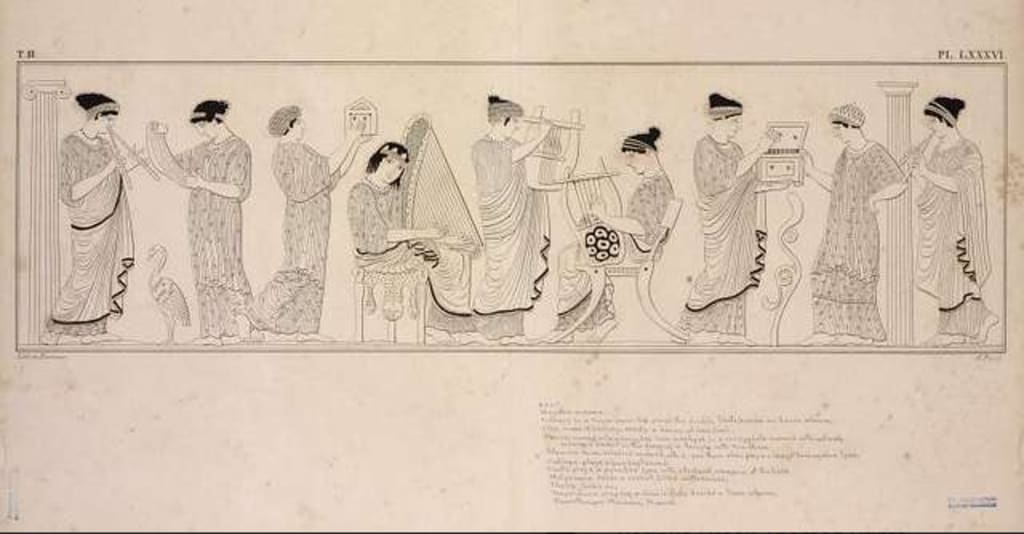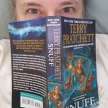
Each year, on or around May 18th, there are two important events. One is, it's my father's birthday. The second is that it's International Museum Day.
The idea behind International Museum Day is to show how important museums are for cultural enrichment and understanding. How they can help exchange ideas and create peace. How they preserve memories and tell stories.
The first museums were not buildings filled with dioramas of cavemen, but actually more of a cross between a library and a church. "Shhhh!" I hear all my librarian and bibliophile friends saying, "Quiet and reverence are required in both - they are very nearly the same thing!" And they would be correct.
Literally translated from the Greek, the word museum means Temple or Shrine of the Muses. When first used in English, the word museum referred to libraries; it was not until the late 17th century that it meant a "building to display objects''. If you look at who the Muses were, the word museum can be expanded to include theaters and observatories as well as concert halls. Hey! Think of that! Carnegie Hall and Madison Square Garden are museums!
So, who are the Muses? As a group, they are nine goddesses, daughters of Zeus, that randy King of Greek gods, and Mnemosyne, goddess of memory. There are other origin myths, probably put out as spin control by Zeus' wife, Hera. The Muses embody culture, knowledge and inspiration. The word muse is also the root for music, or the Art of the Muses.
Individually, the Muses are Calliope, Clio, Erato, Euterpe, Melpomene, Polyhymnia, Terpsichore, Thalia and Urania. Their domains cover types of poetry and drama, music and dance, history, and astronomy. Yes, history and astronomy. Everyone needs a good muse now and then.
The Ancient Greeks looked at poetry in three ways: Epic, Lyric and Sacred. Calliope, of the beautiful voice, is the Muse of Epic Poetry, and is best known for being Homer's muse. No, the Homer that wrote the Odyssey and the Iliad, not the one that likes donuts. Calliope is also the wisest of the Muses.
Erato is Muse of lyric poetry, and is often depicted with a lyre in her hand. Lyric poetry - now think hard back to Poetry 101 - is very expressive, emotional and personal. In Ancient Greece a lyric poem would be performed live and accompanied by the music of a lyre or other stringed instrument. It may be about unrequited love, but it may also be about a longing for one's homeland.
Sacred poetry, or hymns, are the purview of Polyhymnia, who is also the Muse of eloquence. Her name even means "great praises". She is very pensive and serious, and for some reason has also been called the Muse of Meditation and Geometry. I don't quite get how Geometry fits in, other than maybe it takes a lot of pensive meditation to figure out geometry theorems.
In music and dancing there are two Muses: Euterpe is the Giver of Delight, always shown with a flute; Terpsichore is the Dancer of Delight, Muse of Dancing and Song, and, like Erato, is often depicted with a lyre. Terpsichore is said to have mothered the Sirens, and is often associated with the dramatic chorus in Greek Tragedies.
Speaking of Greek drama, both Tragedies and Comedies have their own Muse. Melpomene is the one that is melodious, celebrating with song and dance. She is the Muse of Tragedy, often shown wearing the costume of tragic actors, holding a classic tragic mask, and surrounded by the grapes and vines of Dionysus. Thalia is the joyous, the Muse of Comedy, and of course, she holds a Comedy Mask.
Clio is the Muse of History, and if this sounds at all odd, consider that Clio is also known as The Proclaimer. The root of her name means both to recount, and to make famous. When you wonder what the difference is between those people who strive to make a difference, and those who just complain - the difference is Clio.
The heavenly Urania, the actual "heavenly muse" of Paradise Lost, is the Muse of Astronomy. She holds a globe in her left hand and can foretell the future through the stars. If you have a love of philosophy or the heavens, then you are dear to Urania.
When thinking about all the Muses, and any place that might be considered one of their Shrines, think about some other influences these ladies may have on our modern life. Polyhymnia may help us when we are absorbed in thought, and musing through our possible choices in life. When we find a comedian amusing, it may be because Thalia was there when they wrote their jokes. Of course any musician may have by his or her side any number of Muses: Calliope, Clio, Erato, Euterpe, Melpomene, Polyhymnia, Terpsichore, Thalia; and it's a given David Bowie and Urania were friends.
Next time you visit a museum, think of it as a Museum, a Shrine of the Muses. Think about not only what is there or who is there, but how it got there. How were they inspired? What led them to be famous, or talented, or great? Think about their Muse.
About the Creator
Cie McCullough
I write about history, travel, and whatever crosses my mind. I love to explore and learn, and love history as much as science. I take a different view of the world, and do my best to convey that view when I write.






Comments
There are no comments for this story
Be the first to respond and start the conversation.